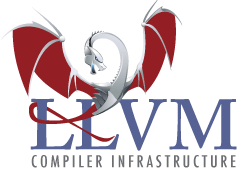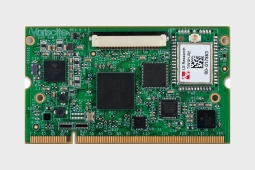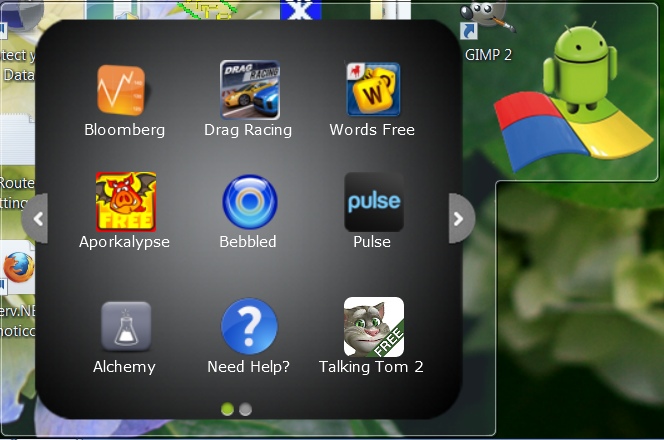The Low Level Virtual Machine (LLVM) is a compiler and toolchain infrastructure, written in C++, designed for compile-time, link-time, run-time, and “idle-time” optimization of programs written in arbitrary programming languages. Originally implemented for C/C++, LLVM is now used with a variety programming languages such as Python, Ruby and may others. Code in the LLVM project is licensed under the “UIUC” BSD-Style license. LLVM can be used to replace and/or supplement the GNU tools such as gcc, g++, gdb, etc… LLVM now consists of a number of different sub-projects including: The LLVM Core libraries provide a source- and target-independent optimizer, along with code generation support for many popular CPUs. These libraries are built around a well specified code representation known as the LLVM intermediate representation (“LLVM IR”). The LLVM Core libraries are well documented, and it is particularly easy to invent your own language (or port an existing compiler) to use […]
Archos G9 GPL Source Code
Archos has released the GPL source code for the Archos G9 Tablets on their Gitorious account. This is obviously the same source code for Archos 80 G9 and Archos 101 G9. There are two git repositories for the G9: archos-gpl-gen9 – Archos generation 9 GPL release archos-gpl-gen9-kernel – Archos generation 9 GPL linux kernel 2.6 release The GPL “userspace” source code is divided into 4 directories: buildroot – Buildroot to generate a cross-compilation toolchain, a root filesystem, a kernel image and a bootloader image. hardware – Direcotory containing hardware related source: WL1283 “Wlan” Driver (WiLink 7.0 single-chip WLAN, GPS, Bluetooth and FM solution) packages: libf2m – Library to convert flash videos (FLV) to AVI, MOV or MP4 libmms – Library for streaming video/audio with mmst / mmsh protocols external- Utilities and libraries (Bold indicates external sw not released/used with Archos G8 Source Code) alsa-lib – Audio library alsa-utils – Audio […]
Cross-compiling Berkelium (and Chromium) for ARM
Berkelium is a BSD licensed library that provides off-screen browser rendering via Google’s open source Chromium web browser. It takes advantage of Chromium’s multiprocess rendering to isolate browsers from each other and can render to any buffer in memory. The user of the library can inject input and javascript code into web pages to control them, as well as listen for events generated by the page such as navigation events, load sequence events and paint events. Berkelium provides a small API for embedding a fully functional browser into any application. This library is used by Xibo Digital Signage Player python client. I’ll give the instructions I followed to build Berkelium and Chromium for ARM. For now the build works, but I have a problem running berkelium in the emulator. First, you’ll need to install some tools and the development version of some libraries: sudo apt-get install git-core subversion cmake doxygen […]
Variscite System On Module based on TI OMAP4460
Variscite – an Israeli company specialized in embedded systems manufacturing, development and consulting – announced the VAR-SOM-OM44 system on module (SOM) based on TI OMAP4460 processor (dual core Cortex-A9 cores @ 1.2 ~ 1.5GHz). This SOM features 512MB of DDR2 SDRAM and a microSD socket, I/O including gigabit Ethernet, USB 2.0, 3D camera, and HDMI. Variscite also announced the VAR-OM44CustomBoard, a development board that can be customized to match specific customers requirement as well as the VAR-DVK-OM44, a complete development kit with touchscreen for evaluation and application development purposes. Here are the VAR-SOM-OM44 SOM specifications: CPU: Texas Instruments OMAP4460 Processor (1.2GHz – 1.5GHz) dual-core ARM Cortex-A9 MPCore GPU: PowerVR™ SGX540 graphics core @384MHz Memory: 512-1024MB 400MHz LPDDR2 Built-In micro-SD Socket Display: LCD interface – Supporting 24bpp resolutions up to WXGA HDMI interface – Supporting 1080p 4-wire touch screen panel interface Audio: Line-in Stereo Headphone out Digital microphone S/PDIF Out Network: 10/100/1000Mbps […]
Android 2.3.7 (Alpha) for HP TouchPad Has Been Released
CyanogenMod team has just released the CyanogenMod 7.1 port for the HP TouchPad. This is an initial alpha release, so there are still plenty of bugs and a few non-working features, but overall it should be in a state that you can at least play around with Android on your TouchPad. For this release they used a new experimental installer called the Alpha CyanogenMod Experimental Installer (ACMEInstaller). This installer will reorganize partitions on the flash (resize the WebOS media volume to make room for Android).ACMEInstaller will be used to install ClockworkMod Recovery, CyanogenMod 7.1 and the new Moboot bootloader. After installation you’ll be able to boot WebOS or Android (dual-boot). The firmware currently support the following features: GPU acceleration 1080p video playback Wifi(with caveats) Bluetooth(no headset profile) Touchstone dock support Audio As it is alpha, there are also plenty of known issues including: Higher than normal battery drain, ~2%/hr while […]
CubeStormer II Solves The Rubik’s Cube in 5.352 Seconds
Do you remember the ARM Android Based Rubiks Cube Solver ? Last year it could solve the puzzle in an average of 15 seconds. David Gilday has upgraded its robot with the help of Mike Dobson and named the device CubeStormer II. They released a video showing the CubeStormer II solve the Rubik’s Cube in 5.352 seconds, faster than the human world record (5.66 seconds). The mechanics are constructed entirely from LEGO, including four MINDSTORMS NXT kits, with the addition of a Samsung Galaxy S II smartphone running a custom Android app as the robot’s brain. The app uses the phone’s camera to capture images of each face of the Rubik’s Cube which it processes to determine the scrambled colours. The solution is found using an advanced two-phase algorithm, originally developed for Speedcuber (originally developed by Mike Dobson), enhanced to be multi-threaded to make effective use of the smartphone’s dual-core […]
Finding the package that contains a particular file in Ubuntu
It often happens that a file is missing during compilation and you get this kind of error: In file included from media/audio/linux/audio_manager_linux.cc:15:0: ./media/audio/linux/alsa_input.h:8:28: fatal error: alsa/asoundlib.h: No such file or directory compilation terminated. In file included from media/audio/linux/alsa_input.cc:5:0: ./media/audio/linux/alsa_input.h:8:28: fatal error: alsa/asoundlib.h: No such file or directory compilation terminated. That usually means a development package is missing. Sometime you can just guess the name of the package or you can use aptitude to find the file. There is also another (better) method in Ubuntu: apt-file utility allows you to find the package corresponding to a particular file. First install apt-file sudo apt-get install apt-file Them the first time, you need to download the files with the data for your system apt-file update Finally, you can use apt-file to find the package. For example with alsa/asoundlib.h apt-file search alsa/asoundlib.h libasound2-dev: /usr/include/alsa/asoundlib.h Jean-Luc Aufranc (CNXSoft)Jean-Luc started CNX Software in 2010 as […]
Running Android Apps in Windows 7 with Bluestacks App Player
Bluestacks has released an Alpha version of its App Player for Windows 7. This sotware allows you to run Android apps inside Windows 7. I’ve tried to install it in Windows XP but it won’t work and here’s the reason: So Bluestack App Player is a Windows 7 gadget, so it would obviously not work in Windows XP. If you want Windows XP, you do not need to despair as you can still run Android-x86 in a virtual machine (The post is a bit old, Android 2.3 is now available). Of course, this is not as neat and fast as Bluestacks application. There are 10 applications pre-installed. I’ve tried Bloomberg app and it works very well. If you need more apps, you can visit Bluestacks Channel and add up to 16 extra applications. The pro-version will not have this limitation and will allow users to install premium apps such a […]







